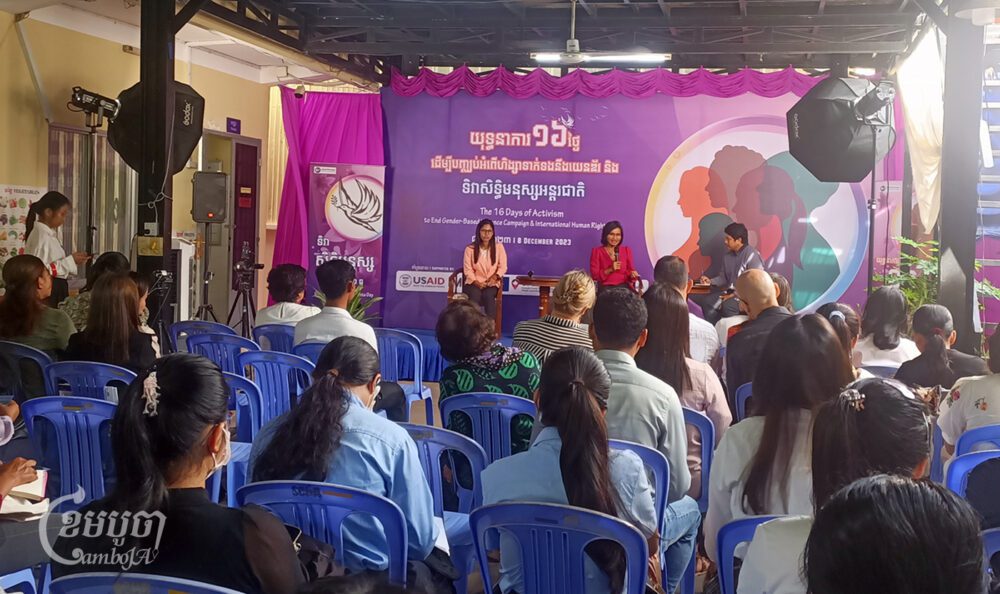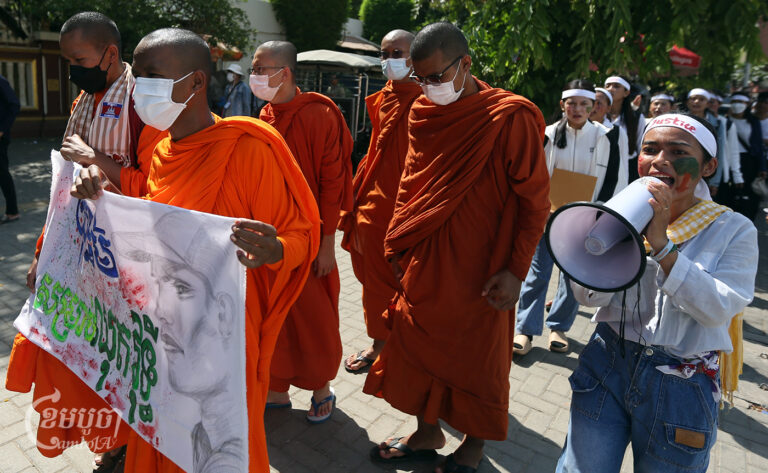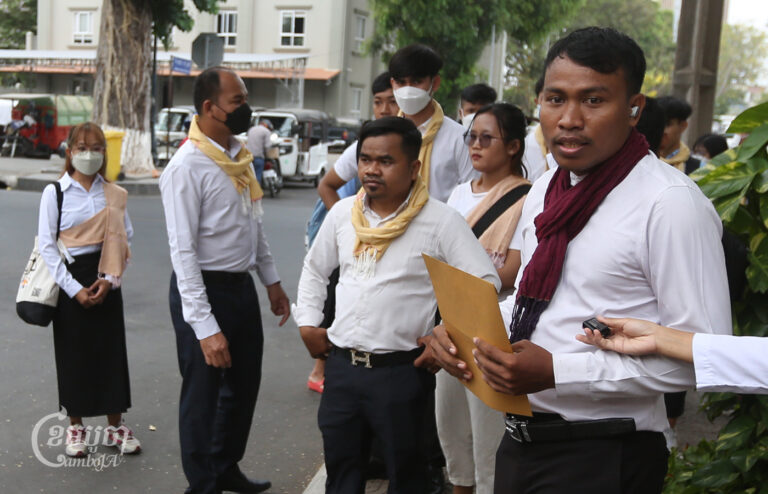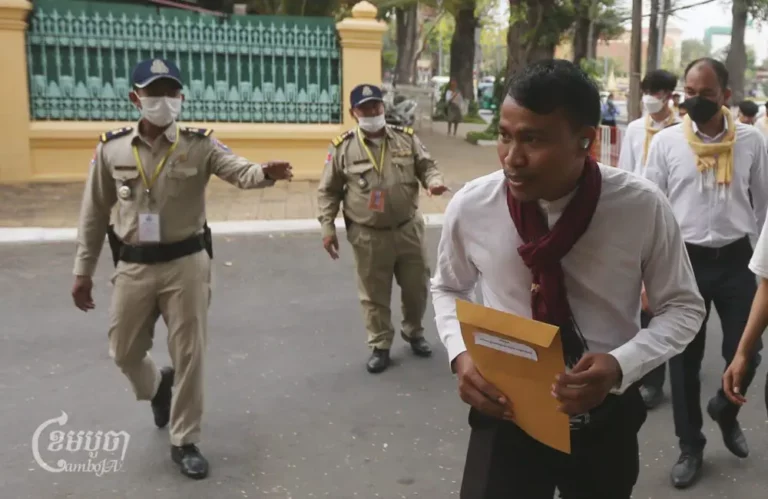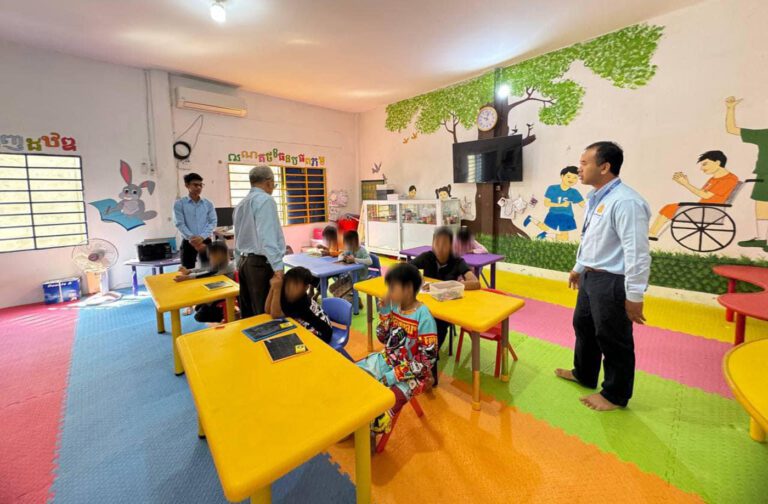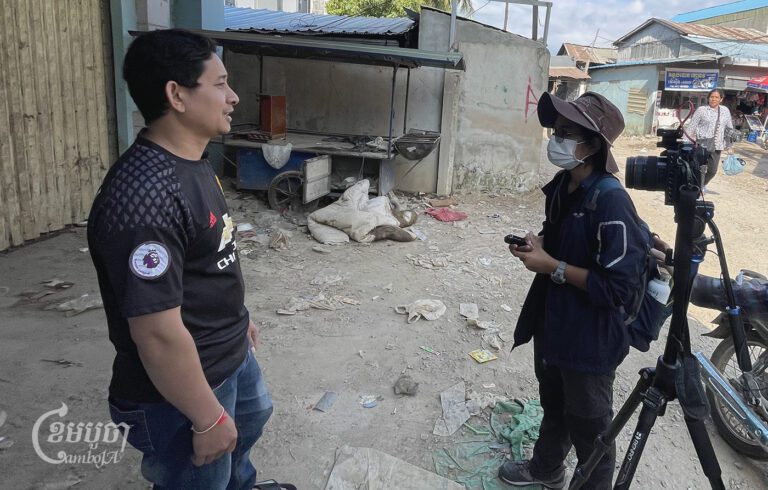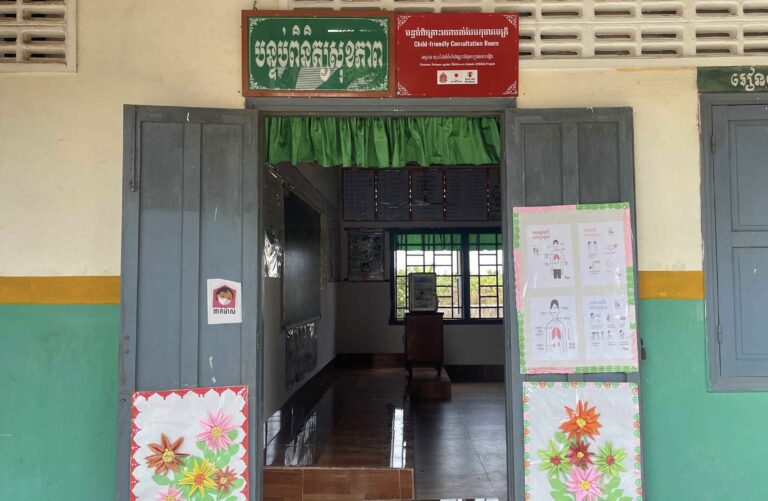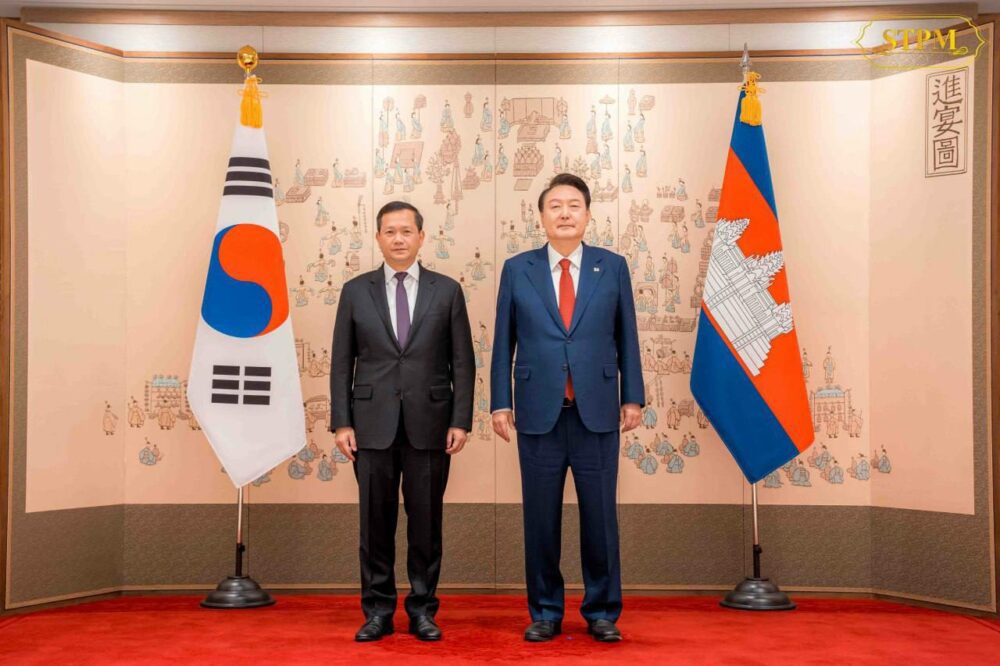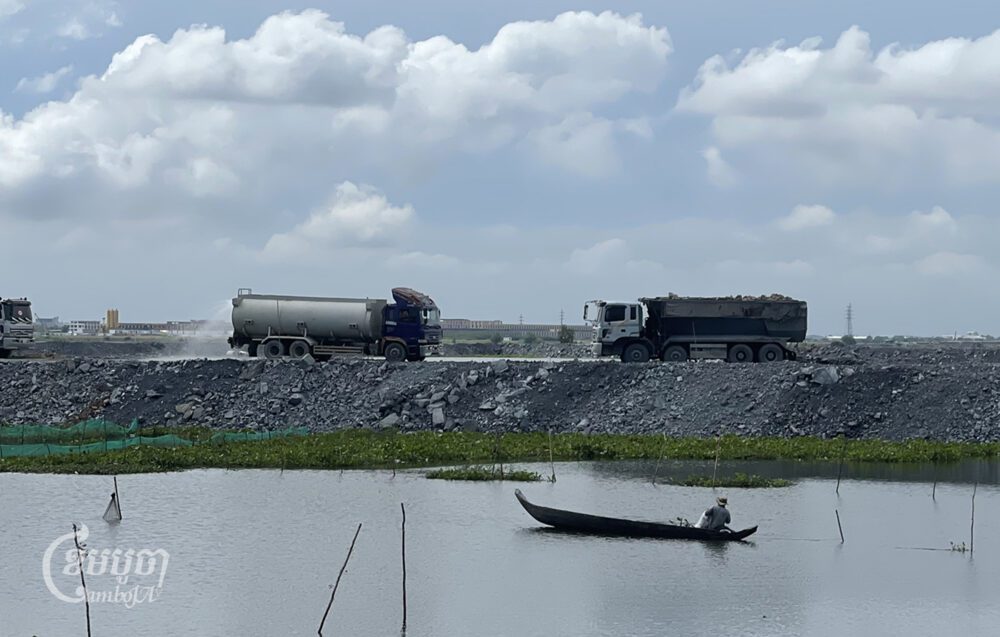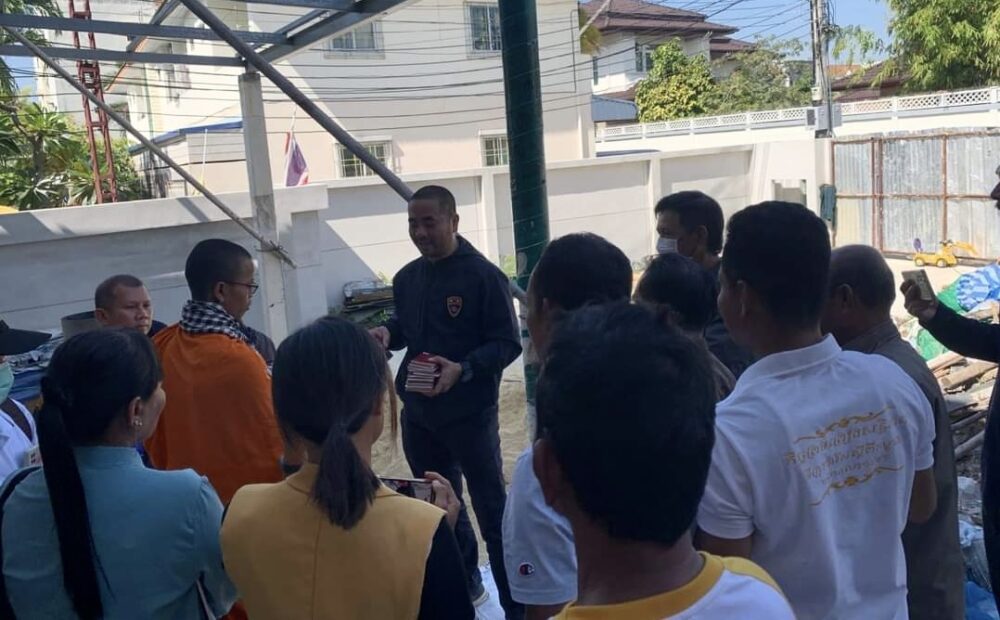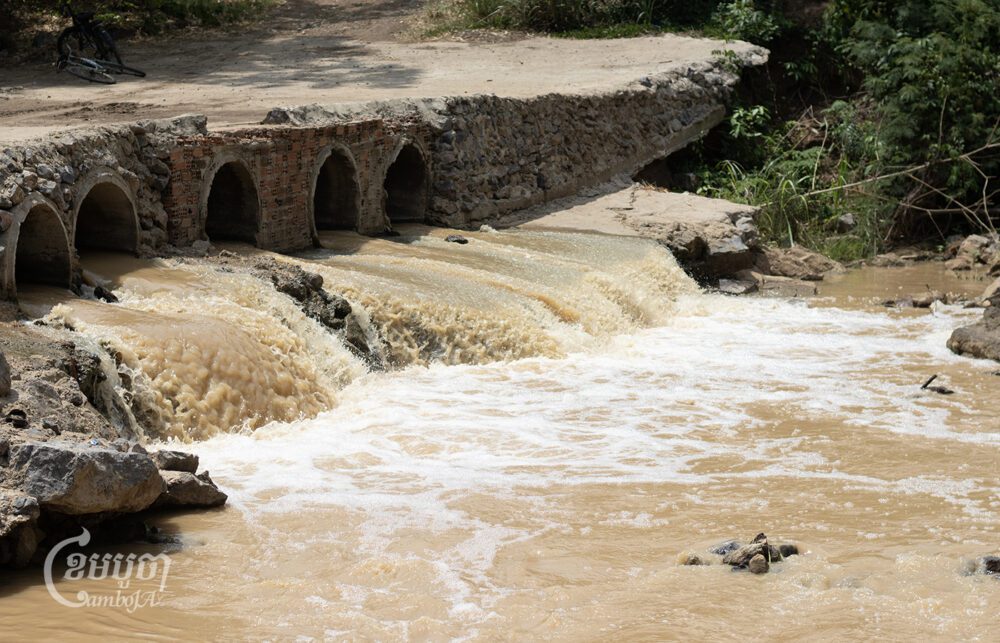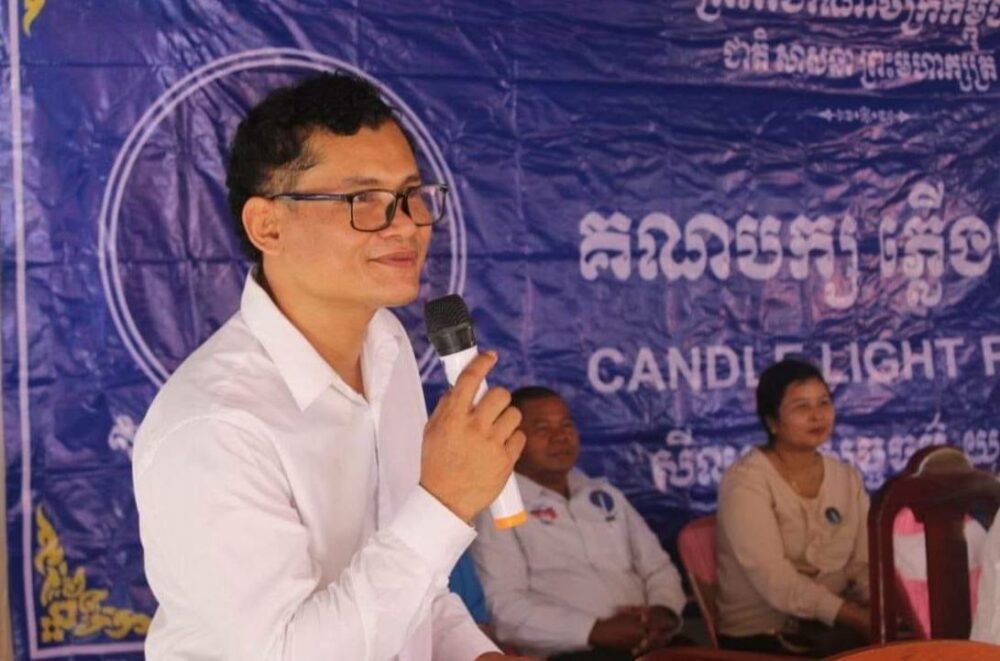The Cambodian Center for Human Rights (CCHR) highlighted the importance of mental health support for women activists as part of the annual international campaign 16 Days of Activism against Gender-Based Violence. The nonprofit held an event Friday where mental health service providers spoke about how women human rights defenders are subjected to violence, harassment and discrimination.
The day included a panel discussion as well as a short play illustrating the challenges faced by women activists. Experts in the mental health field shared strategies these rights defenders can use to prioritize their wellbeing, and urged them to seek counseling if needed. About 50 people attended, including college students and representatives from national and international organizations.
“The emotional state of [a woman activist] may be affected by some of the trauma or some of the events she encounters. We see that when she experiences violence, there is a chance that she will develop depression or anxiety,” said panelist Sorm Rattana, a mental health counselor and trainer at the Cambodian nonprofit Transcultural Psychosocial Organization.
The women clients she has worked with who are human rights defenders often deal with discrimination and a lack of support from their family for the activism that they do. Counseling services can help prevent and treat mental health issues that may come from the stress of being an activist, she said.
“If she has a mental illness and she can help herself, then it’s okay. But if she thinks her mental state is a problem and needs intervention or help, she should go and find a specialist,” she said.
Panelist Yim Sotheary, a mental health counselor and founder of the Sneha Center, described how people often downplay their mental health struggles, even though these issues affect people’s daily lives and work performance.
The two experts both noted that the majority of their clients have trouble acknowledging their mental health struggles, and have put off seeing a counselor because of societal stigma. Plus, people are generally more willing to seek help for physical health issues than for mental health problems. Activists should watch out for signs such as insomnia, appetite changes, irritability and emotional outbursts, and if the symptoms persist, they need to be treated by a professional.
CCHR executive director Chak Sopheap said that women activists have experienced violence and sexual harassment from authorities. In her speech at the forum, she said the government does not have adequate policies to prevent activists from experiencing these threats.
“In some cases, there is a struggle, there is a fight or the authorities have pushed activists,” she said. “We’ve seen some cases where a [woman activist] was pushed up against a rock, and another case where a pregnant woman miscarried because of her advocacy.”
Civil society organizations like CCHR will continue to monitor the treatment of activists and urge the government to implement respect for human rights, she added. Sopheap argued that the government has the responsibility to set specific principles to effectively address gender-based violence and human rights issues regardless of political affiliation.
A land activist from Koh Kong province met with a counselor this week through the help of CCHR. She told CamboJA that her mental health has deteriorated because of the government’s actions in response to her activism. She has felt frustration and sadness about the injustice, and it has become hard for her to get a good night’s sleep. Even when she is listening to Dharma talks she feels irritable.
“I think my mental illness is very serious. It has never been to this level before,” she said. “I have been completely dazed and scared, it seems like something is wrong. When I hear people talking loudly, I feel shocked and cannot sleep.”
She says people have been stopping in front of her house and the houses of other activists with guns, and she feels threatened.
Another land activist from Boeng Tamok described how her neighbors have discriminated against her for protesting injustices. Neighbors have warned others not to get close to her, saying that she would one day be imprisoned for being an opposition activist. She worries that authorities will kick her off her land or evict her, leaving her feeling severe psychological pressure even during sleep.
“Even in my dreams, I dream of the authorities encroaching on my land. Overtime, my feelings have become focused on that,” she said.
The Boeng Tamok activist has never consulted with a psychiatrist but she would be open to it if she had the opportunity. She wants to get treatment because she fears her mental health will get worse over time.
Women’s Affairs Ministry spokesperson Sar Sineth said the ministry has organized capacity building programs for primary care providers regarding psychological counseling and has trained officials, police agencies and other service providers. She added that the ministry has set up hotlines for victims, and those in need should contact their commune’s women’s affairs advocate or local women’s affairs department.
“The Ministry of Women’s Affairs and the Department of Women’s Affairs provide services without discrimination to victims or vulnerable groups, such as women and girls who are victims of gender-based violence,” she wrote in a message to CamboJA News on Telegram.
Sineth explained that the ministry has set up response teams to support services related to gender-based violence, including a “GBV-safe app” and “chat-bot.” The ministry has been developing an app and chat-bot since last year for people to make reports of violence against women. When asked on Thursday when the app and chat-bot would be available to the public, Sineth responded in a voice message “I am busy in a meeting. You look for it.”
But mental health services provided by the government are not going to solve the issues rights defenders face, according to a Cambodian environmental activist.
“If the government provided a sense of security, fair courts or a positive environment around us, and gave us a 100% chance of fulfilling the role [of activists] safely, that would be better than us meeting with counselors and consulting about our mental health,” she said.
She received mental health counseling for more than a year and a half, which she found helpful.
“There is psychological pressure [for activists]. It can be a fear in society, in the justice system, a threat to safety, as well as job pressures that we face,” she said. “We are still struggling to overcome that fear. All of that makes us very stressed.”


